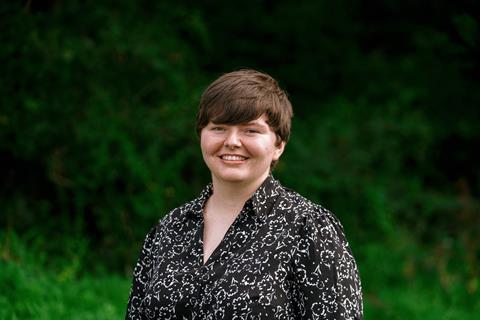Vicky Chapman, an editor at Woodcut Media, explains how she turns challenges into positives in the workplace

For as long as I can remember, I’ve had a passion for editing. I have fond memories of sitting on my grandad’s knee at his desk, watching him design graphics, record sound effects and edit music into home video tapes of our family, being fully encapsulated by the story he was telling.
Fast forward 25 years and I’m doing just that for a career (albeit, with some slightly more advanced software than Windows Movie Maker). I love what I do, but there have been times where I’ve experienced intense burnout and shutdowns due to last-minute schedule changes that weren’t communicated about, ambiguous feedback, or even bright office lights.
Then in 2023, I was diagnosed as being autistic, and that changed everything.
Naturally I was anxious about telling Woodcut about my diagnosis, as it’s such a personal and vulnerable thing, and I was fearful of what people’s preconceived notions might be (it felt strangely reminiscent of when I came out as gay in my teens).
However, it occurred to me that if I’m going to be spending a third of my life working, I might as well try to make that time as comfortable and effective as possible. So, I did disclose to the company and was fortunate to have had the best response from the CEO who was keen to have discussions about adjustments and what can be improved.
One of the first takeaways from those discussions was the creation of a PDF guide to be shared with colleagues that outlines how best to work with me, what my communication preferences are, etc. Thus, the ‘Vicky Guide’ was born, which has now prompted a more standardised ‘Working Well With Me’ document that anyone in the company can fill in.
In this document, it was important that I was not only honest about things I struggled with, like working in noisy/bright environments, interpreting vague feedback and processing verbal communication, but also highlighting strengths that my neurodivergent brain gives me.
For example, my bottom-up thinking allows me to focus on the details to generate a bigger, clearer picture rather than the other way round, which also helps me spot issues that others might not.
On true crime projects, when I resonate with a victim’s story, I can quite easily go into hyperfocus, whereby I’ll research every possible thing about the story and won’t stop until I’m satisfied every stone is unturned.
People listened – I now have a desk in front of a window that allows me to control the brightness of my environment, and colleagues focus more on direct written communication which not only benefitted me, but also generally improved communication between editors and producers across the board.
Once I started seeing the wider implications these guides had, I founded a Neurodiversity Team at Woodcut with two other talented neurodivergent colleagues to maintain inclusivity and further develop support and resources available so all team members can thrive.
Considering alternative communication styles in emails, creating ‘Working Well With Me’ style documentation, or adjusting desk environments so that there are some darker, quieter areas, are just some of the relatively simple adjustments which can be made to ensure everybody in your team is flourishing – the same way you’d adjust your communication when speaking with somebody whose first language isn’t English.
Ultimately what I’ve come to learn on my personal journey, and what I hope I’m teaching others in this industry, is that neurodiversity is not a big, scary concept. As my favourite analogy goes – some brains are like Windows PCs, some are like Apple Macs, there’s nothing wrong with either system, they just operate differently.
Vicky Chapman is an editor at Woodcut Media








No comments yet